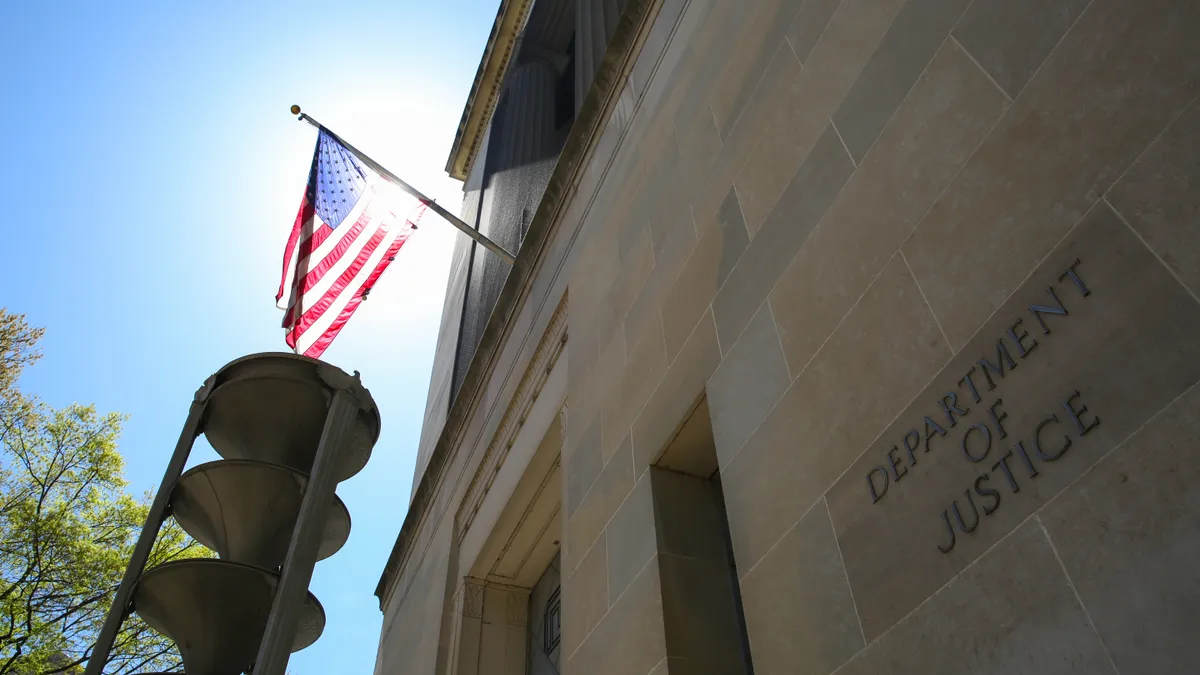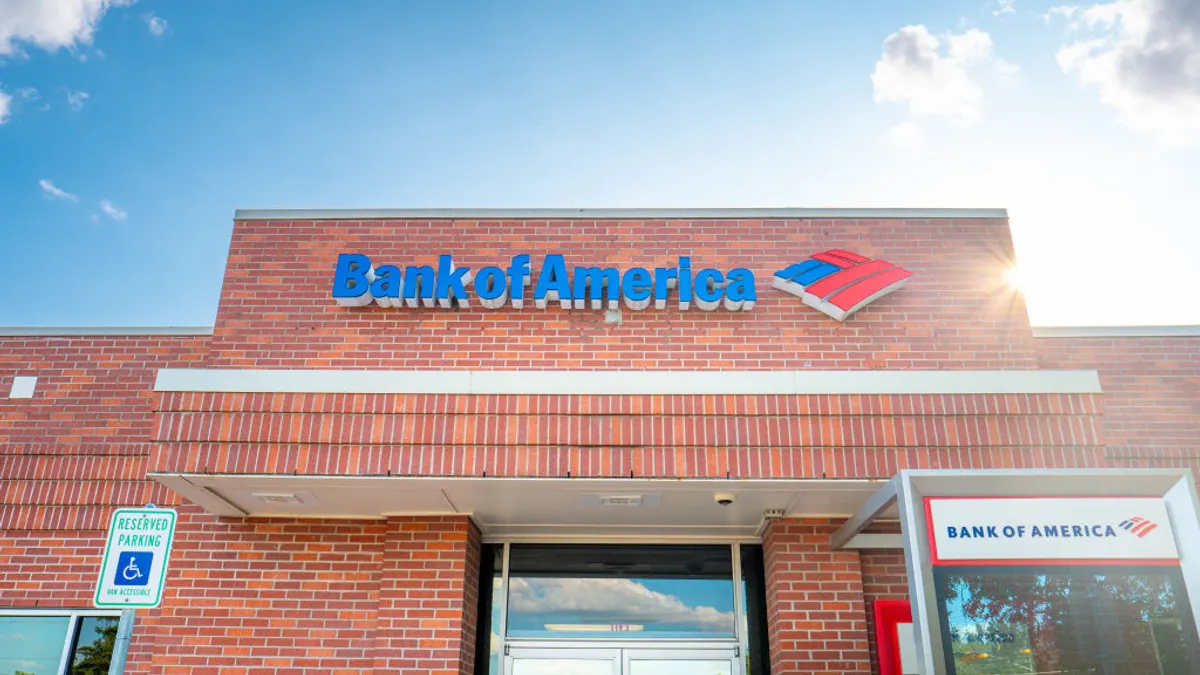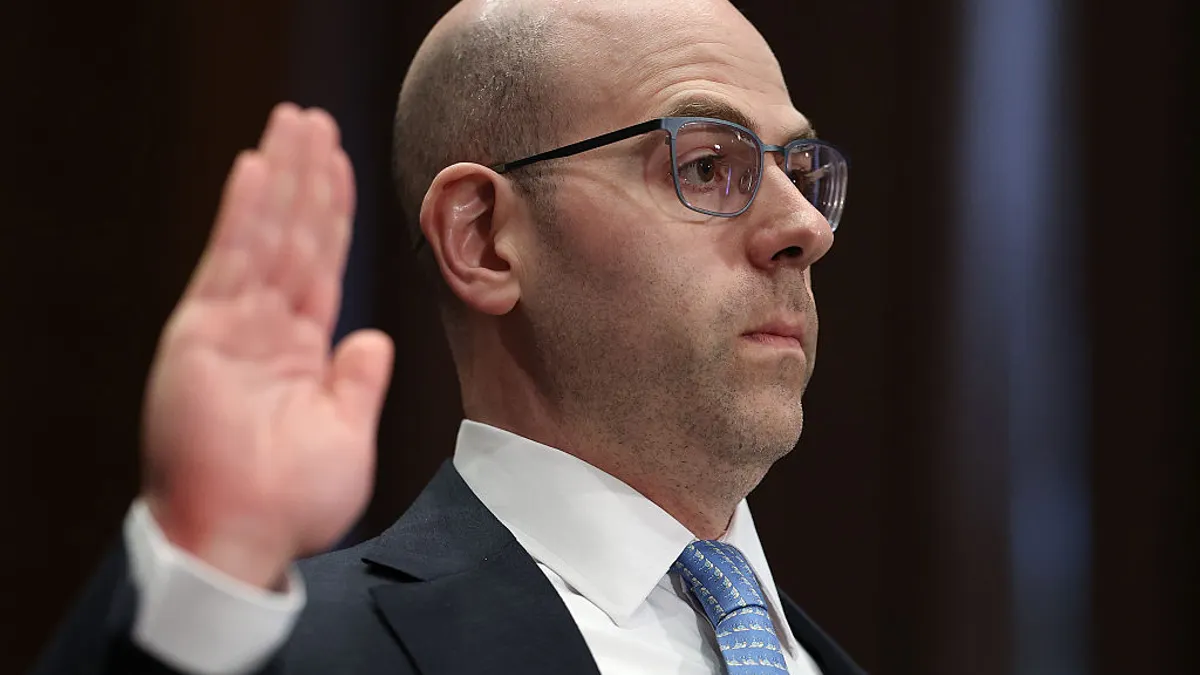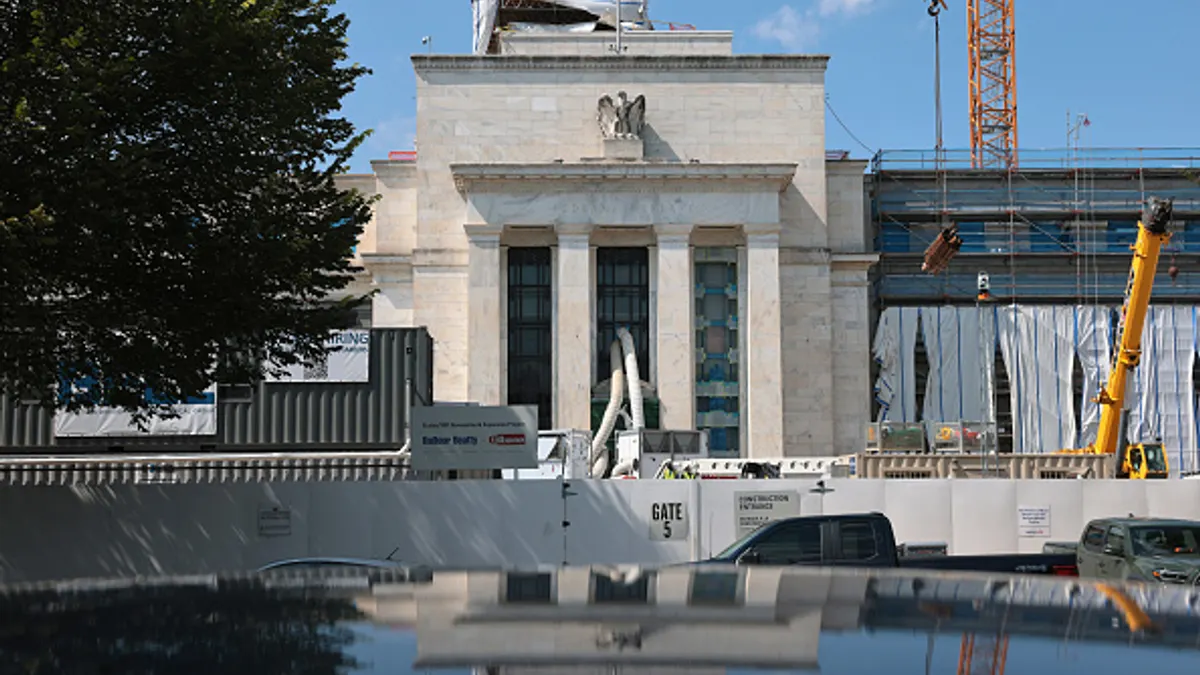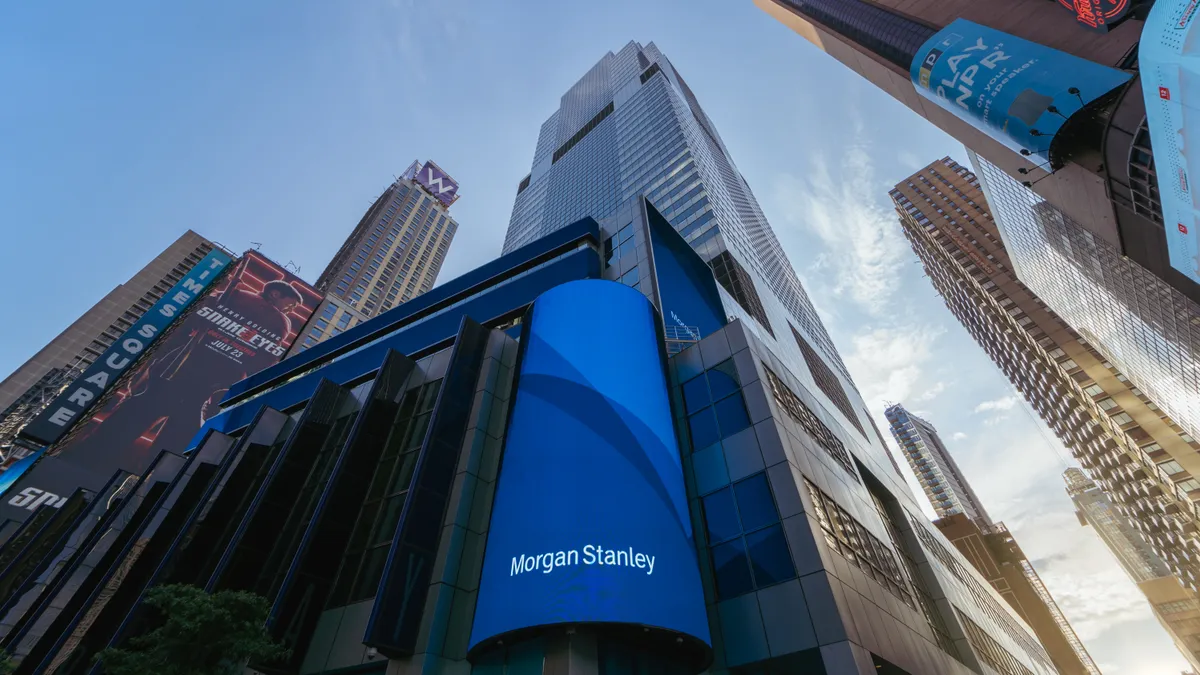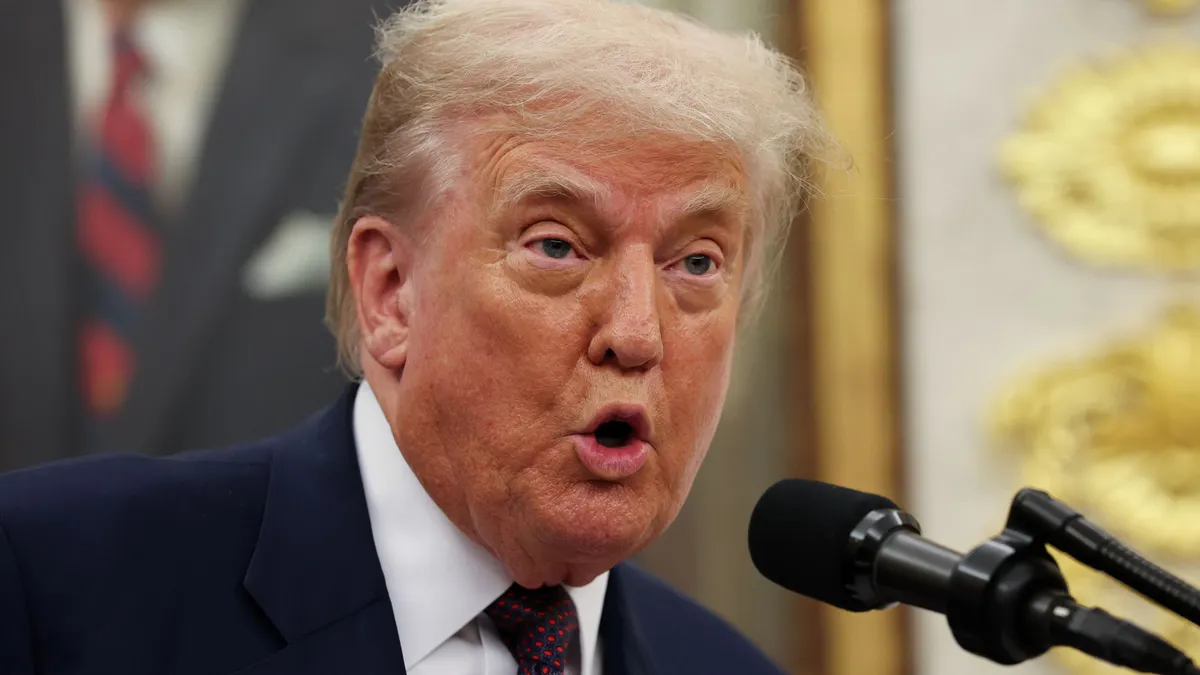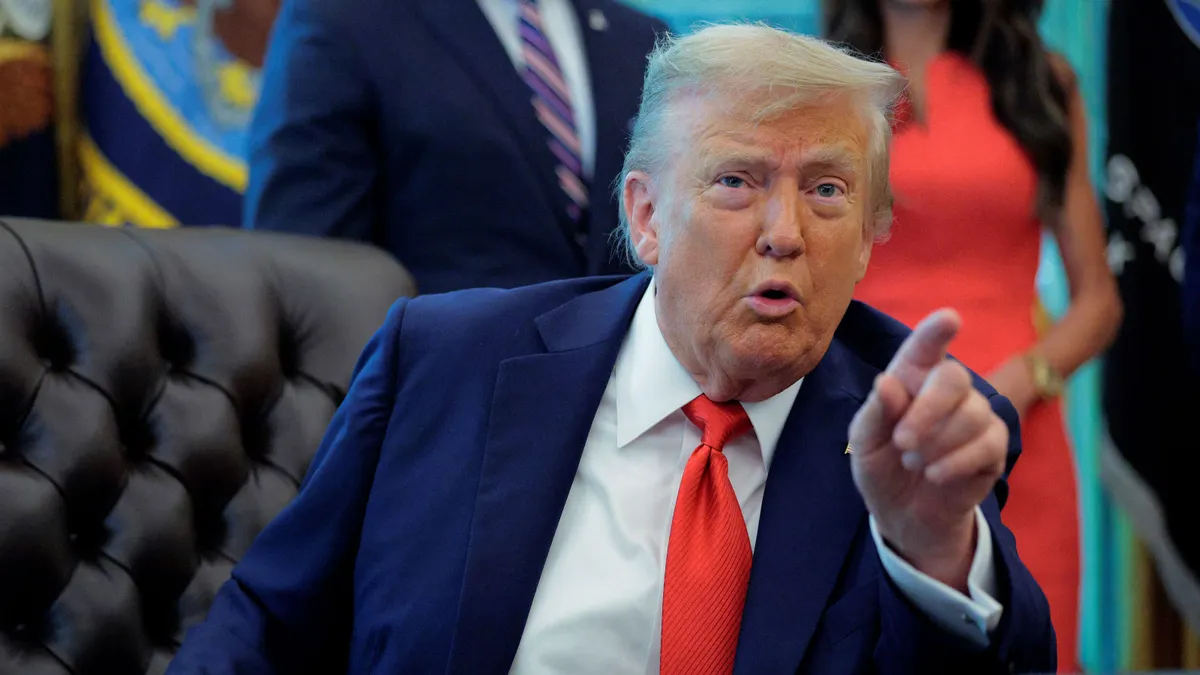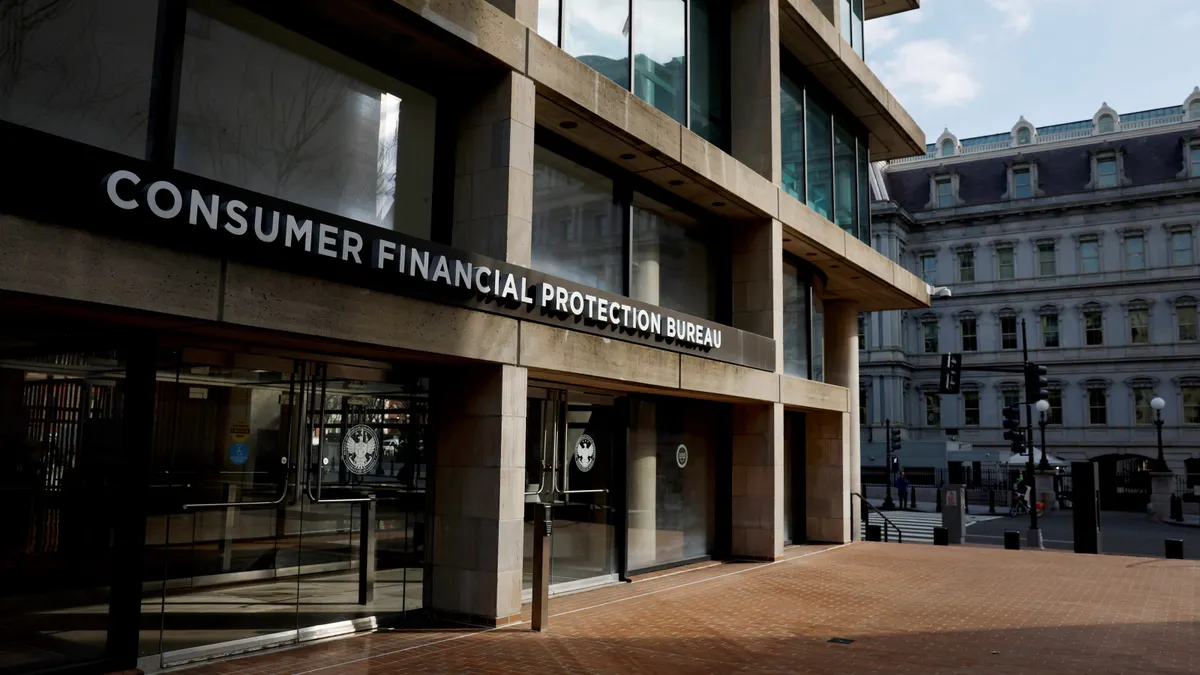Consistency will be crucial for the Justice Department as it makes an antitrust case against Visa while the department also applies scrutiny to the Capital One-Discover merger, analysts said on a recent webinar.
The webinar, hosted last week by conservative group the Federalist Society and moderated by former Federal Deposit Insurance Corp. Chair Jelena McWilliams, featured former Sen. Pat Toomey, R-PA, and largely sought to underscore the benefits of the proposed $35.3 billion deal, announced in February, and promote a pro-merger position.
But the discussion Wednesday also highlighted the careful balance the DOJ may have to strike.
“There absolutely will be inter-relationships” between the Visa case, which looks at the debit card market, and the Capital One-Discover merger, which will affect the debit market, said Diana Moss, vice president and director of competition policy at the Progressive Policy Institute, during the webinar. PPI is a centrist Democratic think tank.
The DOJ “is in a position of really having to carefully articulate its theories to make sure that they have a consistent market power story” across its various actions, “and that they don’t get cross-wise with each other,” Moss said.
In September, federal prosecutors sued Visa, saying it established a monopoly in the U.S. debit card market, which has resulted in higher prices.
The DOJ’s antitrust division is also assessing the Capital One-Discover merger, which requires approval by the Federal Reserve and the Office of the Comptroller of the Currency. The pending deal would make Capital One the largest credit card issuer in the U.S., eclipsing JPMorgan Chase, and the sixth-largest U.S. bank by assets.
Although the deal has prompted antitrust concerns related to consumer card lending, Capital One has leaned into the argument that the merger will increase payment network competition because it can provide a boost to the fourth-largest card network. Capital One aims to leverage its workforce, technology and marketing capabilities to enhance Discover’s competitive viability, CEO Richard Fairbank has said.
During Capital One’s third-quarter earnings call Oct. 24, an analyst mentioned the DOJ’s lawsuit against Visa appears to “validate” Capital One giving Discover’s network a boost and could aid in regulatory approval.
“We are making a strong case that, to a regulator that obviously has shown they care a lot about competition in that marketplace, that we certainly believe that this is very pro-competitive in that sense,” Fairbank said in response. “Of course, we also believe very much that on the credit card side, the deal is pro-competitive, as well.”
Detractors, however, say a bigger, more powerful Capital One could be detrimental for consumers, and some lawmakers and consumer advocacy groups have urged regulators to reject the deal.
If the DOJ blocked the Capital One-Discover deal while also going after Visa, “they’d be intellectually inconsistent,” said Todd Zywicki, professor of law at the Antonin Scalia Law School at George Mason University.
“The whole premise of the Visa litigation is that there aren’t any viable competitors to Visa, which allows them to exercise market power,” Zywicki said during the webinar. A combined Capital One and Discover is poised to be more popular and grow market share, providing more market competition to Visa and fellow networks Mastercard and American Express following the merger, he said.
Zywicki suggested regulators allow competition to happen and see if it solves the problems they seek to address, “rather than trying to go in and have government action, trying to fine-tune markets or redefine competition” through litigation and legislation.
Greater burden?
The proposed merger has both horizontal and vertical aspects, but Moss also expects the DOJ will assess how the combined entity aims to build out an ecosystem that includes various financial services components. The DOJ is also likely to examine sub-markets, such as consumers with lower credit scores, she noted.
The Progressive Policy Institute’s analysis indicated the proposed combination would trigger some thresholds, “but they are very, very close, very marginal calls, based on the 2023 merger guidelines,” Moss said during the webinar.
The combined company’s share in credit card markets would be between 20% and 30%, according to the PPI, depending on a few different types of markets considered, such as the nonprime credit card lending market.
The DOJ in September said it was withdrawing from 1995 bank merger guidelines, and emphasized that merger guidance issued late last year remains “its sole and authoritative statement across all industries.”
The deal “should get a very, very hard look,” Moss said. She noted she’s skeptical of some of the efficiency arguments Capital One and Discover have put forth, such as lower costs, economies of scale, bolstering Discover’s network or increasing services.
However, the Justice Department may face a greater burden if it opts to push back against those, Moss said. “That efficiencies defense is going to be harder for DOJ to push back on if the anti-competitive effects of the deal are very marginal calls,” she noted.
In the Visa case, Moss said prosecutors will have to be careful in defining markets and competition, as the department might, alongside, be developing theories on the Capital One-Discover merger’s alterations to the competitive process.
Capital One expects the deal to close in early 2025. Fairbank said the company continues to work with regulators as its applications are considered.



